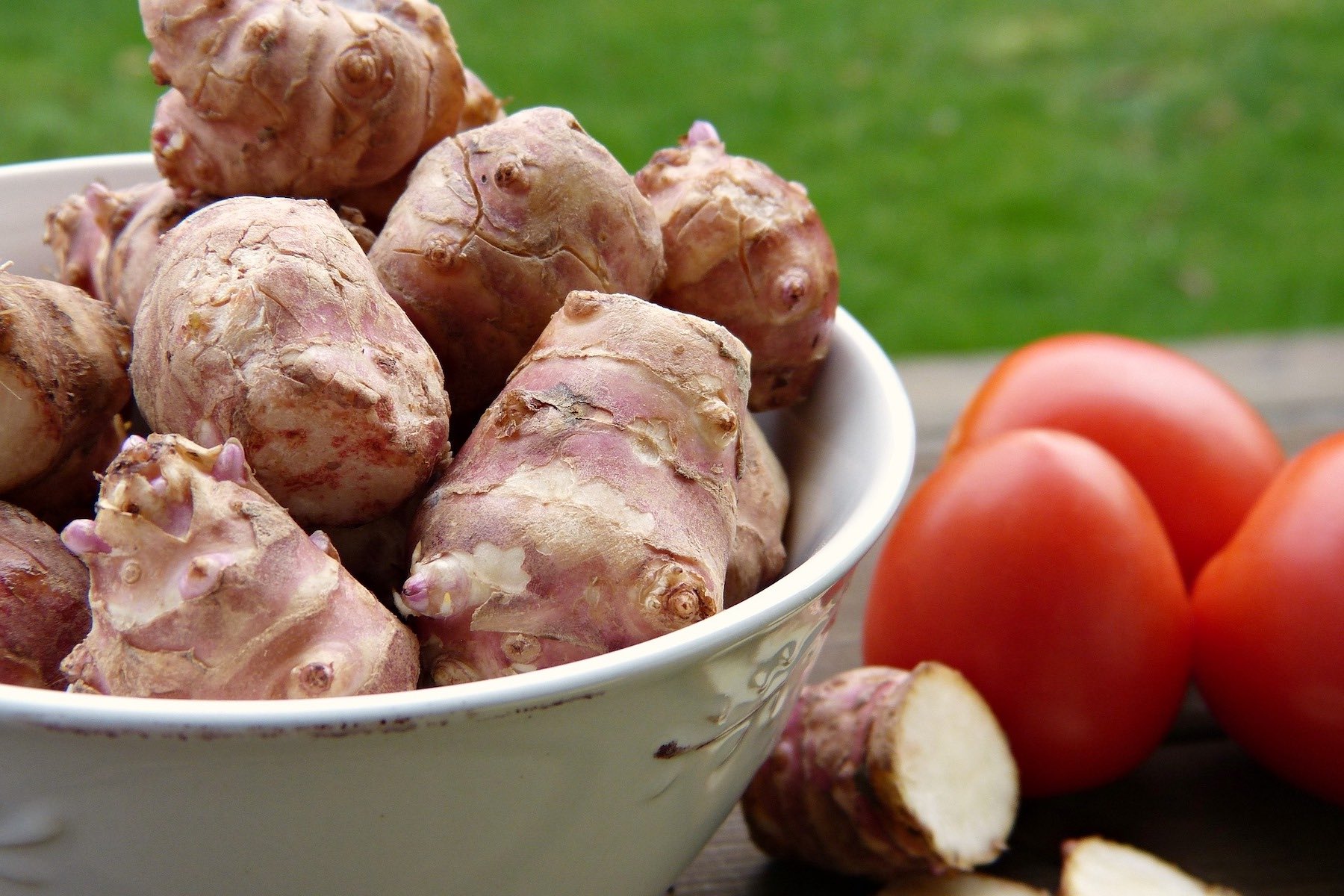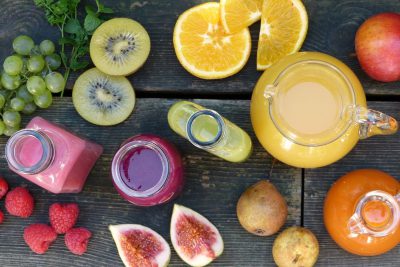“It’s estimated that there’s about 100 trillion bacteria living in our digestive tract,” says researcher Marc Bomhof. “We have about 10 trillion human cells versus 100 trillion bacterial cells and so we’re essentially 10% human and 90% bacteria.”
No wonder, then, that taking care of the bacteria in our guts is so important!
What is Gut Health?
Our guts are more complex and more wonderful than we once thought. Yes, they allow us to take in food, extract the nutrients and get rid of the waste, but they do a lot more than that. Research is increasingly finding that gut health impacts on a wide variety of health conditions, from cancer and depression to diabetes and Alzheimer’s disease.
A healthy gut contains a good balance of ‘good’ bacteria as well as immune cells that ward off infectious agents, including ‘bad’ bacteria. It’s a balancing act, and maintaining a healthy gut is an ongoing process.
What Are Probiotics?
Probiotics are live bacteria and yeasts thought to help restore the natural balance of bacteria in the gut. There is some scientific evidence that they may help prevent diarrhea when taking antibiotics and ease some symptoms of irritable bowel syndrome. Probiotics can be found naturally in some foods such as fermented foods like kimchi and sauerkraut.
What Are Prebiotics?
Prebiotics are the non-digestible fibrous parts of food that support the growth of healthy bacteria. Many plant foods – such as oats, bananas, berries, watermelon, asparagus, garlic and leeks – contain prebiotic fibre while supplements provide larger amounts.
What’s The Difference Between Prebiotics And Probiotics?
Prebiotics are non-digestible fiber that nourish our good gut bacteria; probiotics are good bacteria and yeasts contained within certain foods and supplements.
Why Is Gut Health Important?
We all know what it feels like to have digestive problems – heartburn, stomach ache, bloating, diarrhea, and vomiting are always unpleasant and can ruin an otherwise great day. If they persist, the results can be debilitating or speak of a bigger problem. A healthy gut doesn’t just keep us feeling well in the moment, it can have a much wider impact on our health over the long-term.
Gut Health And Your Brain
Although no one yet knows exactly how the gut can affect the brain, research is indicating that the connection is real. For example, one study of two large groups of Europeans found that several species of gut bacteria are missing in people with depression. Whether this caused the illness and was caused by it is yet to be determined.
Research has also found that people with Alzheimer’s tend to have more inflammatory ‘bad’ bacteria and less anti-inflammatory ‘good’ bacteria in their guts, and they tend to have a less diverse mix of gut microbes overall.
Gut Health And Your Heart
One of the substances produced by our gut microbes is called TMA, and it is formed when our bacteria feed on choline – a nutrient found in meat, fish and eggs. TMA is converted in the liver to TMAO and this is strongly connected with heart attacks and strokes. In fact, people with the highest TMAO levels were 62% more likely to experience serious cardiovascular problems than those with the lowest levels. One thing is clear: What we feed our gut bacteria is incredibly important.
Gut Health And Your Kidneys
Gut health plays a part in the functioning of our kidneys, too. We know that chronic kidney disease (CKD) affects the gut microbiome which in turn contributes to the progression of the disease. Improving the gut’s health can have a positive outcome on the kidneys.
What Are The Symptoms Of An Unhealthy Gut?
It is usually easy to tell if you have digestive troubles – gas and bloating, nausea and stomach pain are all tell-tale signs but there are other indicators too …
A High-sugar Diet
If you are eating a lot of sugar in your diet, then it is more likely your gut will suffer. Remember sugar doesn’t just come in candies. It’s hidden away in all sorts of processed and packaged foods, as well as soft drinks.
Autoimmune Conditions
An unhealthy gut may increase systemic inflammation which affects the proper functioning of the immune system. If the immune system goes rogue and attacks itself rather than taking on invading pathogens, this can result in any number of serious and debilitating conditions such as lupus, rheumatoid arthritis and multiple sclerosis.
Food Intolerances
Gut bacteria is connected to food allergies, too, and the impact can come early in life. Those with food allergies may find they are missing certain species of protective gut bacteria.
Skin Irritation
Just as bacteria live in our guts, different bacteria live on our skin and the gut microbiome appears to influence the skin microbiome. Supporting the gut with probiotics and / or prebiotics, can help prevent and treat inflammatory skin diseases including acne, atopic dermatitis and psoriasis.
Sleep Disturbances Or Constant Fatigue
Having trouble sleeping? Well, we don’t wish to give you something else to worry about but this could be having an impact on your gut health. If you’re feeling tired a lot, this could indicate you need to pay attention to your guts.
Unintentional Weight Changes
Losing or gaining weight without making changes to your diet or exercise regime could indicate gut health problems. Of course there are other reasons too, so it’s best to get checked by a medical professional if your weight changes without an obvious reason.
Upset Stomach
Perhaps the clearest indicator of a gut imbalance is an upset stomach. Most people suffer from time to time, but if it is regular or persistent, it may be time to pay closer attention to the health of your guts.

What Can An Unhealthy Gut Cause In The Long Term?
Our guts could be implicated in some of the most serious diseases and painful conditions that affect us today.
Cancer
Evidence increasingly supports the idea that gut microbes play a part in the causation of cancer. One particular bacterium called Fusobacterium is found in and around one third of bowel cancers. Those who eat ‘inflammatory’ diets have a higher risk of Fusobacterium-related bowel cancers. But it’s not just cancers within the intestinal tract that are linked to our gut biome. Researchers say there seems to be a direct link between gut bacteria and breast cancer.
Heart Disease
Research into just how the gut microbiome influences heart disease is underway and there are currently any pieces of the puzzle missing, but the link is definitely there. A wealth of information has already been collected about which gut bacteria are associated with cardiovascular disease, and how the gut acts as a virtual endocrine system, and communicates with organs.
Immune System
Our guts provide an essential service in regulating our immune systems, and an unhealthy gut can affect this and lead to autoimmune disorders. Researchers point to dietary habits as key, and indicate how quickly the gut’s health can change with dietary changes.
Rheumatoid Arthritis
Rheumatoid arthritis (RA) is a systemic chronic inflammatory disease, caused by both environmental and genetic factors. While major research has focused on genetic factors, there is a growing realization that the host microbiota, and especially the gut microbiota, play a key role in the development and progression of RA.
How Can I improve My Gut Health?
Much of our gut health is beyond our control, being due to genetics, and even how we were born and whether we were breast-fed. But that is not to say it is all out of our control! There is a lot we can do to maximise our gut health and to minimise the associated risks of a poor gut biome.
Avoid Smoking
A 2018 metastudy of research published over 16 years found that smoking alters the intestinal flora by increasing potentially harmful bacteria while decreasing the levels of beneficial ones. One more reason to kick the habit.
Avoid Taking Antibiotics Unnecessarily
Antibiotics kill bacteria but they can knock out the good ones as well as the bad ones. If you need antibiotics, take them. If you can avoid taking them without risking your health, your gut will thank you for it.
Check For Food Intolerances
If you suffer regular digestive problems, you may have a food allergy or intolerance. Get tested or eliminate the most common trigger foods from your diet to see if that can have an impact.
Eat A Vegetarian Diet
The foods that support great gut health are plant-based. A diet rich in fruits, legumes, vegetables and whole grains provides the fiber that builds good bacteria. Animal products, by contrast, are inflammatory, feed the bad bacteria, and can raise the risk of many serious diseases, including heart disease, type 2 diabetes and some cancers.
Eat Slowly
Your mom was right! Eat slowly and chew your food well to ensure better digestion and absorption of the nutrients.
Get Enough Sleep
Sleep is so important for our well-being, and that includes supporting optimal gut health. In one study, researchers found that those who slept well had a more diverse – or ‘better’ – gut microbiome.
Get Help For Issues Like Anxiety And Depression
Our mood and digestive systems are closely linked. Help one, and you’re likely to help the other.
Lower Your Stress Levels
Easier said than done, right? But stress plays a significant role in our mental and physical health, and that includes our guts. If you can find ways to reduce your stress – through meditation, yoga, breathing exercises or whatever works for you – you may find your gut health also improves.
Move More, Exercise Regularly
Not only is exercise great at reducing stress, improving our mental health and keeping us heart-healthy, research suggests it can also improve gut health.
Stay Hydrated
Dr. Jacqueline Wolf, associate professor of medicine at Harvard Medical School, says that sufficient water is often missing from our diets, so staying hydrated could be a quick fix for your digestive ailments.
Take A Prebiotic Or Probiotic
One will supplement your gut bacteria, the other will nourish them!
Use Different Cleaning Products
Researchers found that those who live in homes where disinfectant cleaning products are used at least weekly were twice as likely to have higher levels of a particular gut microbe that is associated with type 2 diabetes.

Types Of Food For Gut Health
This is simple: Choose plant foods! Many contain prebiotic fiber so pack your diet with leeks, onions, garlic, chicory, cruciferous vegetables, Jerusalem artichokes, bananas, watermelon and wholegrains. Then add in the probiotics including tempeh, sauerkraut, kimchi, miso and kombucha.
Researchers state: “A plant-based diet appears to be beneficial for human health by promoting the development of more diverse and stable microbial systems.”
What Are The Worst Foods for Your Gut?
All animal protein – whether that is from meat, fish, eggs or dairy – should be avoided, along with sugars and sweeteners, and processed and fried foods.
Other Ways To Fight Gut Infection
There are other ways to boost your gut health but they’re not as enjoyable as eating a delicious plant-based meal and taking a yoga class!
Fecal Transplantation
This is just what it sounds like. Feces from a healthy donor are introduced into the colon of a less health recipient. This is most commonly done to treat IBS and C. difficile-associated disease.
Transcranial Magnetic Stimulation (DTMS)
Research has found that sending magnetic pulses to stimulate specific regions of the brain can have a positive impact on the gut biome. After five weeks, subjects had greatly increased quantities of several beneficial bacterial species that have anti-inflammatory properties.
Conclusion
There is much we can do today to protect our gut, starting with adopting a healthier diet and lifestyle. If we eat well, prioritise stress management and good sleep, and exercise regularly, we can support our gut biome, which in turn will support our good health and longevity. Now, isn’t that a worthwhile investment to make?
Register to receive some of our favourite healthy plant-based recipes for free.



